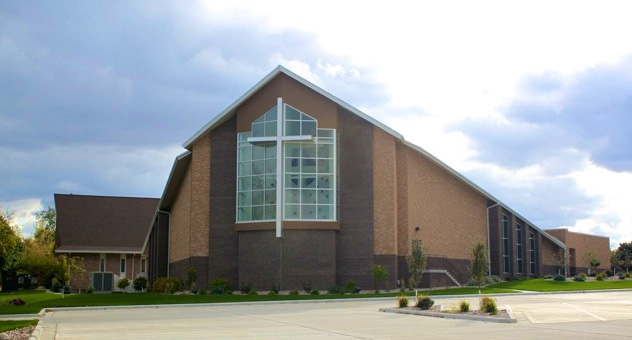If you were to pause and reflect on the ministry of American Reformed Church over the past three years, would you say we have made progress towards the intended outcome of our ministry efforts? Some of you might think, well I’m not sure what the intended outcomes of our ministry efforts are.
And for those who would agree that we have made progress over the past three years towards our ministry efforts, let me ask you, how would you measure that?
Since last October the Ridder: Churches Learning Change Team has been working on defining some measurable outcomes for our ministry. Basically we were challenged to consider what is the intended goal of our ministry—why are we doing it—and are we succeeding?
In order to help us process our work, we have been reading Gil Rendle’s book, Doing the Math of Mission: Fruits, Faithfulness and Metrics. In chapter one Rendle makes this sobering statement, “At the heart of the church’s struggle to be fruitful is a common non-profit dilemma: nonprofits routinely do not know what difference they are trying to make. In other words, nonprofits (including churches) do not know what outcome they are trying to produce.”
After telling a story to illustrate one church’s lack of clarity on why they were doing what they were doing, a situation came up where a church board needed to make a decision on whether or not to baptize the baby of a mom who was an inactive member of that church. They decided to proceed with the baptism, “Because you never know what good can come of it years later.”
Is that the goal of why we baptize babies, or of why we put so much time and energy into Sunday School, Pioneer Club, Youth Groups, Vacation Bible School (which by the way, that team is already busy preparing), Bible studies, etc.—“because you never know what good can come of it later”?
Rendle then goes on to tell how, because churches don’t know what they are measuring, they end up focusing on counting. Counting things like how much money is given in the offering each week and how many attended worship. He would argue that there is nothing wrong with counting; it’s just that what we count identifies our “resources,” while what we measure identifies our intended outcome.
For example, in 2019 our giving was down $ 8,184 and our average worship attendance was down 3 people than the previous year. Those numbers represent counted resources. However those numbers may also represent a measurable difference in the spiritual condition of our congregation as well.
So if counting and measuring are both important, then obviously it’s important to be clear about the outcome of what we are doing and why we are doing it. As Yogi Berra once said, “If you don’t know where you are going, you’ll end up someplace else.” Rendle defines an outcome as “The measurable difference you believe God has called you to make in this next chapter of your life.”
After much discussion at many meetings, I believe the difference that God has called this ministry to make is to “Apprentice next generations to passionately communicate and demonstrate the gospel message of the Kingdom.” I believe that is an accurate description of our mission to make disciples who obey everything Jesus commanded. So then, if “Apprenticing next generations to passionately communicate and demonstrate the gospel message of the Kingdom” was our intended outcome over the past three years, now could you say we have been making measureable progress towards that goal?
Identifying measurable progress has also become a challenging part of the conversation; can you measure—how do you measure—if a person is becoming more passionate about communicating and demonstrating the message of the kingdom?
Well Jesus had much to say about counting and measuring. For example, from Matthew 7:16-20, 16 “By their fruit you will recognize them. Do people pick grapes from thornbushes, or figs from thistles? 17 Likewise, every good tree bears good fruit, but a bad tree bears bad fruit. 18 A good tree cannot bear bad fruit, and a bad tree cannot bear good fruit. 19 Every tree that does not bear good fruit is cut down and thrown into the fire. 20 Thus, by their fruit you will recognize them.”
May it be said of you and me that our lives reflect measurable growth in communicating and demonstrating the message of the King and his kingdom!
Growing in grace,
Mike Altena








